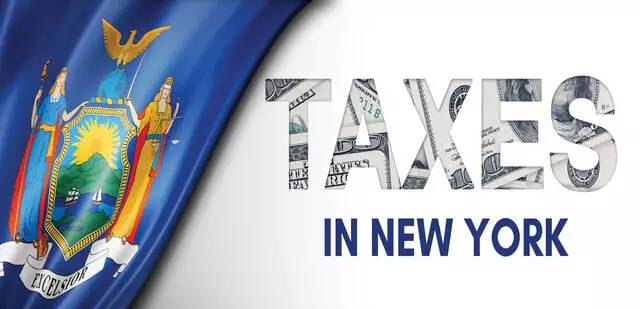
“It’s quiet. Too quiet.” This adage was first attributed to “The Lucky Texan” (1934), a western starring John Wayne, Barbara Sheldon, and Gabby Hayes. It is oft-repeated in movies (e.g., Shrek 2, Galaxy Quest, Sleepy Hollow) and television (Band of Brothers, Better Call Saul, The Wire).
It appears frequently. But the bit of dialogue including the trope that is most in-line with the ethos here at TiNY is:
“It sure is quiet out there.” “Yeah, too quiet.” “Looks like I picked the wrong week to quit sniffing glue.” (Airplane, 1980 – link here.)
Anyway, I was in the TiNY editorial offices on July 5, and it was quiet, too quiet. But quiet can be good, and in this case, it gave me some uninterrupted time to get caught up on a bunch of cases that were posted in June and were awaiting TiNY consideration.
Decisions:
Matter of United Deli and Grocery (June 13, 2024); Div’s Rep. Elizabeth Lyons, Esq.; Pet’s Rep. Jonathan Koren, Esq.; Articles 28 and 29/Timy (Chris Doyle).
The Tribunal agreed with the ALJ that the Division proved both its standard mailing practices and that they were followed when it mailed the Notice to Petitioner’s last known address on February 28, 2022. Therefore, Petitioner’s petition filed on June 23, 2022, was late, and the DTA didn’t have the jurisdiction to hear the case.
On Exception, Petitioner raised the argument that the certified mailing record, which was part of the proof of mailing, was prepared ten days prior to the actual mailing of the notice and that such a gap between CMR preparation and mailing was not consistent with the Division’s standard practices. But the Tribunal found that the preparation of a CMR several days prior to the actual mailing date was standard practice, and thus the Division had proven proper mailing.
And here is a job I wouldn’t mind delegating to Artificial Intelligence: go through all of the decisions and determinations discussing timeliness and compare the affidavits summarized by the Commissioners/Judges to see if there are any discrepancies in what is claimed to be “standard procedures.”
Determinations:
Matter of Robinson (ALJ Chu-Fong, June 6, 2024); Div’s Rep. Amy Seidenstock, Esq.; Pet’s Rep. pro se; Article 22/Dependent credits (Zoe Peppas).
In 2018, Petitioner claimed a New York State earned income credit and Empire State child credit, as well as a federal earned income credit. New York’s earned income credit is 30% of the federal earned income credit. However, to be eligible for the earned income credit, the taxpayer must have earned income (shocker!).
The Division selected Petitioner’s return for a desk audit and sent her an audit inquiry letter requesting documentation to support her reported business income. Petitioner responded with birth certificates and social security cards for her children; her birth certificate, driver’s learners permit, and social security card; a letter from her landlord; and most importantly, a notarized letter from a babysitting client, stating Petitioner was paid $350 weekly to babysit the client’s two children. The Division issued a notice of disallowance of the entirety of Petitioner’s claimed refund, ignoring Petitioner’s response to the audit inquiry letter.
Petitioner filed a request for conciliation conference at BCMS. BCMS recomputed Petitioner’s Empire State child credit claiming she had no verifiable income. Petitioner timely filed a petition at DTA
At DTA, the Division argued for disallowance of the credits, arguing Petitioner did not substantiate her reported income for 2018 and did not respond to the Division’s audit inquiry letter. However, Petitioner did respond to the audit inquiry letter, though she conceded she lacked any further documentation of her babysitting income, as she was paid in cash informally and did not have a bank account so could not show any deposits.
The Judge found Petitioner met her burden of proof with her testimony and the documents she provided, stating “Petitioner’s testimony and acts stand in stark contrast against the Division’s apparent disregard of her response.” Petitioner was entitled to the earned income credits she requested, and therefore to the child tax credit. So, here’s to you, Ms. Robinson.
Matter of Rubinov (ALJ Chu-Fong, June 6, 2024); Div’s Rep. Bruce D. Lennard, Esq.; Pet’s Rep. pro se; Article 22/Timy (Pete Calleri).
The Division issued a notice of determination to Petitioner on March 23, 2023, asserting additional sales and use tax due from Petitioner’s business. Petitioner protested the notice by filing a request for conciliation conference with BCMS on October 26, 2023. BCMS dismissed the request as untimely, which Petitioner protested by filing a petition with DTA.
The ALJ ultimately sustained the BCMS conciliation order dismissing Petitioner’s request. The Division was able to establish its standard mailing procedure even though the certified mail record (“CMR”) was insufficient to do so. The CMR was uninitialed and comprised of three unconnected pages, making it impossible to ascertain whether the pages bore consecutive numbering. However, the Division provided USPS documentation, as well as affidavits from the Manager of the Division’s mail room and from the Director of the Division’s Management Analysis and Project Services Bureau, which were sufficient to establish actual delivery of the notice of determination, standard mailing procedure, and proof of mailing.
Under Tax Law § 170(3-a)(b), the typical statutory timeframe for requesting a conciliation conference is 90 days. However, if a fraud penalty is asserted pursuant to Tax Law § 1145(a)(2), then the statutory period is reduced to 30 days. In hindsight, this 60-day difference would likely have been inconsequential for Petitioner (as he filed his request for conciliation conference approximately 215 days after notice was issued). However, there is no explicit mention of any fraud allegation in the Determination. In fact, the Findings of Fact section states that “[t]he notice lacks any explicit reference to fraud penalty.” Seemingly, the only implication of fraud here came from the response date listed on the notice of determination—it required a response by April 22, 2023, which was 30 days from the March 23, 2023, notice.
The red herring fraud issue notwithstanding, the ALJ determined that Petitioner’s request was untimely, and that the DTA lacked jurisdiction to consider his protest. Accordingly, the ALJ denied the petition and sustained the conciliation order dismissing his BCMS request.
Matter of 74 Wythe Restaurant Company LLC, et. al. (ALJ Taylor, June 6, 2024); Div’s Rep. Aliza Chase, Esq.; Pet’s Reps. Joseph Endres, Esq. and Ariele Dolittle, Esq.; Articles 28 and 29/Admission Charges (Chris Doyle).
There’s a lot here, and some of it is good beach reading. I particularly liked the passage in the Findings of Fact that starts with “The Division asserted that petitioner’s admission charges were taxable because ‘the concerts performed at the night club do not fall under the category of ‘live dramatic or musical arts’ performances.’” It continues with “On August 17, 2023, the [Judge] ordered the Division to provide the statutory basis or bases on which the Division based its determinations to assess additional sales tax. The Division responded on September 12, 2023, stating that it based its determination to assess sales tax on admission charges to Output on three alternative statutory provisions: Tax Law § 1105(d), (f)(1), or (f)(3).” And ends with “[the auditor] testified that she did not believe that she concluded that petitioner’s admission charges were subject to sales tax under Tax Law § 1105(d) and that she was unfamiliar with that particular section of the Tax Law.”
But because this is a Hodgson Russ case, TiNY will follow its “Joe Friday” policy and avoid my usual snarky editorial comments.
Petitioner operated a music venue that provided DJ-curated and -performed electronic musical entertainment. The Department viewed this as being something other than a live musical performance and thus subject to sales tax. You see, admission to some places of amusement and entertainment are subject to sales tax, but venues providing live musical entertainment are, by statute, excluded from the tax on admissions (with certain exceptions not relevant in this case). Petitioner brought in a PhD in electronic dance music as an expert witness. The Doctor testified that a DJ performance is a live musical performance, giving examples of the improvisational and creative elements that go into such performance. And the Doctor contrasted performance DJs and wedding DJs or radio DJs who simply play recorded songs.
Judge Taylor agreed that Petitioner’s admission charges to see DJs perform at its music venue were exempt from sales tax.
Just the facts, ma’am.
Matter of Ye (Supervising ALJ Gardiner, June 13, 2024); Div’s Rep. Maria Matos, Esq.; Pet’s Rep. pro se; Article 22/DTA’s jurisdiction (Pete Calleri).
Petitioner filed a petition for redetermination of a deficiency but attached a statement of proposed audit change to the petition. Because a statement of proposed audit change does not give rise to hearing rights, the DTA made a written request to Petitioner for a copy of the statutory notice being protested pursuant to 20 NYCRR 3000.3(b)(8). Petitioner did not respond to that request by providing a copy of the required notice. The DTA then issued a notice of intent to dismiss petition, to which Petitioner did not respond. Accordingly, the SALJ dismissed the petition with prejudice. She determined that Petitioner had failed to attach to their complaint a statutory notice contemplated by Tax Law § 2008(1) and thus failed to confer jurisdiction upon the DTA.
Matter of Davilar (Supervising ALJ Gardiner, June 13, 2024); Div’s Rep. Christopher O’Brien, Esq.; Pet’s Rep. pro se; Article 22/DTA’s jurisdiction (Pete Calleri).
Petitioner filed a petition for redetermination of a deficiency or for refund and attached a statement of proposed audit change. Because a statement of proposed audit change does not give rise to hearing rights, the DTA made a written request to Petitioner for a copy of the statutory notice being protested pursuant to 20 NYCRR 3000.3(b)(8). Petitioner failed to provide such notice. The DTA then issued a notice of intent to dismiss petition, to which Petitioner did not respond.
As a consequence, the SALJ dismissed the petition with prejudice. She determined that Petitioner had failed to attach a statutory notice contemplated by Tax Law § 2008(1) and thus failed to confer jurisdiction upon the DTA.
Matter of Olmez (Supervising ALJ Gardiner, June 13, 2024); Div’s Rep. Emil Kambala; Pet’s Rep. pro se; Article 22/DTA’s jurisdiction (Pete Calleri).
Petitioners filed a petition with the DTA protesting a conciliation order. The petition was signed on behalf of Petitioners by Petitioners’ daughter, who did not appear qualified to represent Petitioners, as no executed power of attorney form accompanied the petition. The DTA sent a letter to Petitioners notifying them of the issue, but Petitioners failed to cure the defect. As such, the DTA issued a notice of intent to dismiss petition.
Under 20 NYCRR 3000.2(a)(2), the following may act as the representative of a taxpayer before the DTA: (i) an attorney-at-law licensed to practice in New York; (ii) a certified public accountant duly qualified to practice in New York; (iii) an enrolled agent permitted to practice before the IRS; and (iv) a public accountant enrolled with the New York State Education Department. Additionally, while Tax Law § 2014 authorizes a spouse to represent a petitioner, it does not authorize representation by a petitioner’s child. The DTA asked Petitioners to sign the petition themselves, and when they failed to do so, the petition was dismissed.
Matter of Maharaj (Supervising ALJ Gardiner, June 13, 2024); Div’s Rep. Daniel Schneider, Esq.; Pet’s Rep. pro se; Article 22/DTA’s jurisdiction (Pete Calleri).
Petitioner filed a petition with the DTA and attached a tax warrant issued by the Department. Because no statutory notice or conciliation order was attached to the petition, the DTA made a written request for a copy of the statutory notice being protested. The DTA informed Petitioner in the request that a tax warrant does not offer appeal rights with the DTA. Petitioner then provided a copy of a notice and demand, which is also insufficient to confer jurisdiction upon the DTA. Therefore, as Petitioner failed to provide a challengeable notice under Tax Law § 2008, the DTA lacked jurisdiction over the petition and dismissed it.



